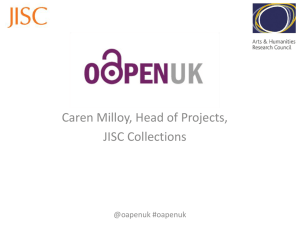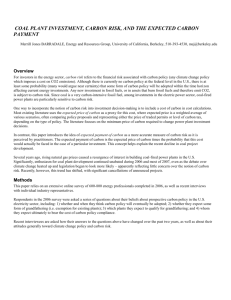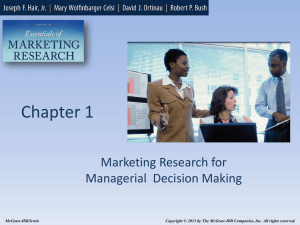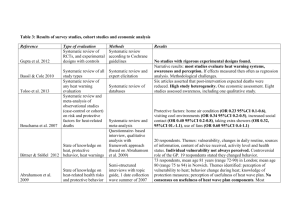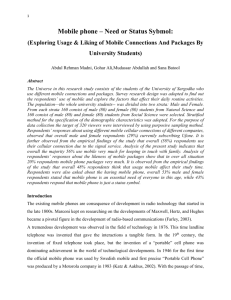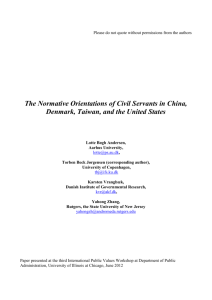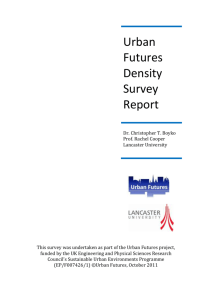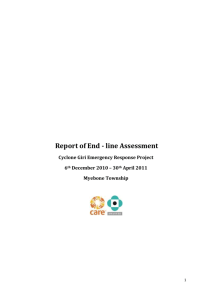here - The Fund for our Economic Future
advertisement
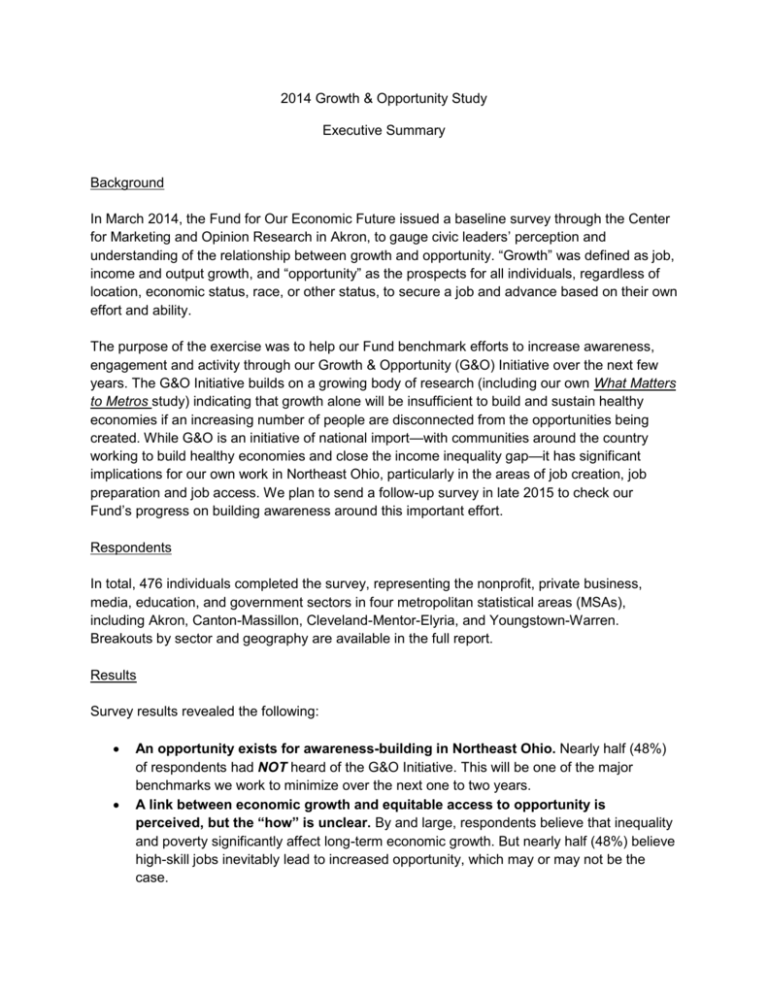
2014 Growth & Opportunity Study Executive Summary Background In March 2014, the Fund for Our Economic Future issued a baseline survey through the Center for Marketing and Opinion Research in Akron, to gauge civic leaders’ perception and understanding of the relationship between growth and opportunity. “Growth” was defined as job, income and output growth, and “opportunity” as the prospects for all individuals, regardless of location, economic status, race, or other status, to secure a job and advance based on their own effort and ability. The purpose of the exercise was to help our Fund benchmark efforts to increase awareness, engagement and activity through our Growth & Opportunity (G&O) Initiative over the next few years. The G&O Initiative builds on a growing body of research (including our own What Matters to Metros study) indicating that growth alone will be insufficient to build and sustain healthy economies if an increasing number of people are disconnected from the opportunities being created. While G&O is an initiative of national import—with communities around the country working to build healthy economies and close the income inequality gap—it has significant implications for our own work in Northeast Ohio, particularly in the areas of job creation, job preparation and job access. We plan to send a follow-up survey in late 2015 to check our Fund’s progress on building awareness around this important effort. Respondents In total, 476 individuals completed the survey, representing the nonprofit, private business, media, education, and government sectors in four metropolitan statistical areas (MSAs), including Akron, Canton-Massillon, Cleveland-Mentor-Elyria, and Youngstown-Warren. Breakouts by sector and geography are available in the full report. Results Survey results revealed the following: An opportunity exists for awareness-building in Northeast Ohio. Nearly half (48%) of respondents had NOT heard of the G&O Initiative. This will be one of the major benchmarks we work to minimize over the next one to two years. A link between economic growth and equitable access to opportunity is perceived, but the “how” is unclear. By and large, respondents believe that inequality and poverty significantly affect long-term economic growth. But nearly half (48%) believe high-skill jobs inevitably lead to increased opportunity, which may or may not be the case. Whether in a “growth” or “opportunity” camp, there is a strong desire for future engagement. While a majority of respondents felt they resided in either a “growth” or “opportunity” camp (see further explanation below), a majority (82%) expressed interest in participating in a G&O Initiative that promotes a stronger connection between the two. What’s more, a majority felt either “somewhat” or “very” confident that a measurable impact could be made from G&O efforts. These themes are explored in greater detail below. An opportunity for awareness-building in Northeast Ohio Only a small percentage of respondents (4%) had heard of and were very familiar with the G&O Initiative, exposing a great need for enhanced awareness. Survey results also indicated that “Growth and Opportunity” means different things to different people. When asked what they thought the phrase “Growth and Opportunity” refers to when thinking about the regional economy, responses varied, but could be classified into common themes, including expanding/growing/increasing, employment/workforce, create/attract/add/develop/new, and diversity/inclusion. In thinking about their own work, 24% of respondents identified more with the “growth” camp (e.g. economic development agencies, chambers of commerce), and 28% associated more with traditional advocates for opportunity (e.g. social service providers, nonprofits and foundations). Less than half of respondents associated themselves as being part of both a “growth and opportunity” camp (see below). Associate more with 'Growth' or 'Opportunity'? 8% 24% 40% 28% Growth Opportunity Both Neither A perceived link between economic growth and access to opportunity. In general, respondents identified a strong link between economic growth and equitable access to opportunity. Nearly 98% of respondents said access to opportunity is somewhat or very critical to sustained economic growth. How best to approach this issue was not as clear, with 48% of respondents believing the creation of high-skilled jobs inevitably leads to increased opportunity. Still, participants acknowledged the importance of building stronger connections between growth and opportunity efforts in the economy, with 71% calling it very important. A strong desire for future engagement. While a vast majority, or 82%, of respondents expressed interest in participating in a G&O Initiative, 42% believed they were already involved in efforts (listed in the full report) that address G&O. Those most frequently cited included initiatives led by the Northeast Ohio Sustainable Communities Consortium, respondents’ own employers, local economic development offices, and the Regional Economic Competitiveness Strategy, the partnership between our Fund and the business community. Approximately a third (31%) of respondents were aware of other existing efforts focusing on growth and opportunity, but were not currently involved with them. While respondents expressed some skepticism, more than 75% were either somewhat or very confident that measurable improvement could result from G&O efforts. For questions on the survey, please contact Emily Garr Pacetti, Director of Research and Evaluation at the Fund. To explore how to better link local or regional initiatives, contact Chris Thompson, Director of Regional Engagement.


